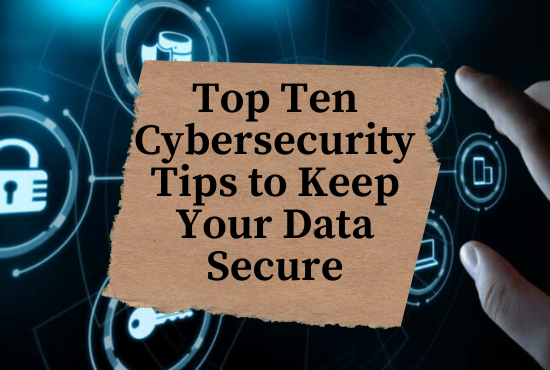In the era of the internet, it is difficult to secure data on mobiles or laptops. To secure data from hackers and stop its misuse, keep the following tips in your mind to keep devices safe and alert from threats. For instance, you can download software for writing purpose so consult to term paper easy for queries. But the software may get corrupt and steal your data without knowing.
- Password in electronic devices:
It is recommended to have passwords on all devices such as mobiles, laptops, and even in your applications and emails. This will help to protect your data and devices. Try to have a strong password-based on both words and characters both. You can also use a trusted password management tool to keep track of your records.
- Don’t share personal information:
Avoid sharing any credit card or home address-like information while filling any form or requirements. Do not trust anyone on social media.
- Don’t click on unnecessary links:
Careful about clicking any links that are unknown to you. They are also the source of hacking information and steal your data. Have complete information of recipient and sender of the attached links in the mails or in messages. They can steal your location, date of birth, identity, phone number, etc. Change your privacy settings and keep the information only to yourself.
- Have VPN for security:
VPN will protect your devices from being hacked by removing your IP address and hiding your activities on the internet. It will also keep you safe from accessing any public network or hotspots that are suspicious. It stands for a virtual private network in internetetsecurite.
- Uninstall necessary documents:
Computer operating at a slow pace may be due to unnecessary files. Try to clean your computer from deleting applications and files in your downloads. Permanently deleting software will protect your computer from viruses. If you are a student that needs to find some topics for their study, just use senior thesis topics.
- Use Wi-Fi at home:
Avoid accessing public Wi-Fi and try to work from your home or office. It is recommended to use VPN to protect your device from other networks, as it is encrypted and get more difficult for cybercriminals to obtain your personal data.
- Update your software:
Keep your software, applications, and operating system up-to-date and track it with VPN or other routers. Install safety plugins for websites that will warn you from visiting malicious sites.
- Don’t give access to private information:
Most of the application demands permission to access to media, contact list, and other information. If these messages pop up, then don’t install such software.
- Install antivirus:
Antiviruses programs will protect your smart devices from hackers and entering harmful viruses that corrupt your data. Use software for free or buy from a licensed company that will guarantee protection.
- Use authentication keys:
Authentication is the service that will protect your identity and hide your passwords for security purposes. This type of authentication is called two-factor because this will add another layer of security before entering your username and passwords.











